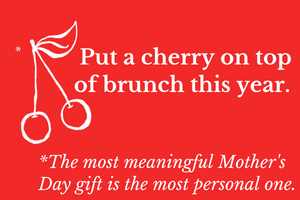Last night, my boyfriend and I were on a run around our city when we spotted a pile of goods lying in the middle of the street.
We investigated, only to discover the contents of a box of fresh organic food strewn into the road. We conclude some harried parent must had forgotten the box on top of their car and had it topple off, but the good’s owners are no where in sight. The light is red, but soon to change, the goods doomed to be smashed by oncoming tires. My boyfriend is quick to dash out and retrieve several almost miraculously undamaged entrees and a loaf of fresh seeded bread.
Cut to a couple of months ago. My boyfriend and I are attending a folk concert at a hip local venue, well known for their tapas dishes. We discover, while waiting for the show to start, that we are sitting right next to the band that is to perform. The venue has provided them with an array of tapas dishes to enjoy before the show. We see them start to clear out, leaving many untouched or barely touched dishes behind. My boyfriend is once again on the ball, intercepting the waiter and asking if he would mind just moving the dishes over to our table if he was just going to throw the food away. It turned out he didn’t mind.
If these scenarios inspire an uncomfortable tingling on your social stigma sensor, your perceptions are in step with collective American ideals. We are culturally conditioned to accept a certain amount of food waste and turn our noses up at wide variety of less than ideal foods. Unfortunately, that certain amount of food waste we will accept is a lot of food waste.
In the United States, we waste a conversative 30-40% of our food. This is without speaking to the profound impacts the growing and harvesting of the food we are not eating has on the environment.
In this age of highly consumer-conscious dining and food shopping, it’s a constant struggle to be ethically accountable for what you eat while not going plum broke. A trip to your local co-op, a friendly fruit stand, or farmer’s market will provide you with food you can feel physically and ethically great about eating, but it comes at a steep price. If one is able to afford it, supporting sustainable farms and local growers is a great practice. But what about those that want to eat well on a highly restrictive budget?
There are other options that come at the price of social stigma but are otherwise free. The scenarios I described at the beginning of the article, while true, are not descriptive of the typical way I or my boyfriend feed ourselves. We do however, spend an average of less than $10/week on groceries.
Our food largely comes from the dumpsters around the mid-sized mountain town where we live.
We are not alone in this practice. The art of acquiring free food that would otherwise find it’s home in a landfill is often referred to as freeganism.
The act of acquiring food Freegan-style, colloquially known as dumpster diving, is a practice allowed by law in most states in the United States. Although dumpster divers are still held to the standards of other laws, like not littering or disturbing the peace, once trash enters a dumpster it enters public domain. (California vs. Greenwood was the supreme case that decided this in 1988).
A staggering 40% of food in the United States is disposed of, uneaten. A large portion of the food is disposed of for various reasons that have no bearing on the food’s nutritional value or edibility.
Food waste practices at national and local chains include:
– Throwing out slightly bruised or other aesthetically “imperfect” produce, such as irregularly ripening bananas.
– Disposing of entire cases of canned or jarred goods due to a single breakage.
– Throwing out all products on the day of expiration, despite contention around the edibility of the food weeks or months past the, sometimes very arbitrary, date.
The consequence of these practices is that, waiting in most dumpsters around America, are perfectly edible bags of sweet potatoes, crates of slightly unhusked sweet corn, barely damaged boxes of cereal and fresh fruit cups dated to expire the day you find them. Although some places take little care with their garbage, most meat is double bagged and much of the produce we find is isolated from the rest of the trash in a bag, box or crate.
I don’t mean to glamorize the process. Dumpster diving is not a anesthetized trip down a mopped grocery aisle. It takes some personal grit to hop into a trash receptacle and search for the bounty that lies within.
But if you are willing to brave it, you are doing your part to cut down on the immense amount of food that is wasted per person, per day in this nation. You are part of a movement that cares that we, American society, waste nearly as much food as we eat. You can become a part of transition into a more mindful way to consume and recycle the food we eat.
A great video about Freegan dumpster diving can be found here.
~
Sources:
United States Department of Agriculture.
~
Relephant Read:
There is Such thing as a Free Lunch: Meet the Freegans.
~
Author: Maggie Jo Parsons
Editor: Alli Sarazen
Photo: Andre Taranchenko/Flickr







Read 2 comments and reply